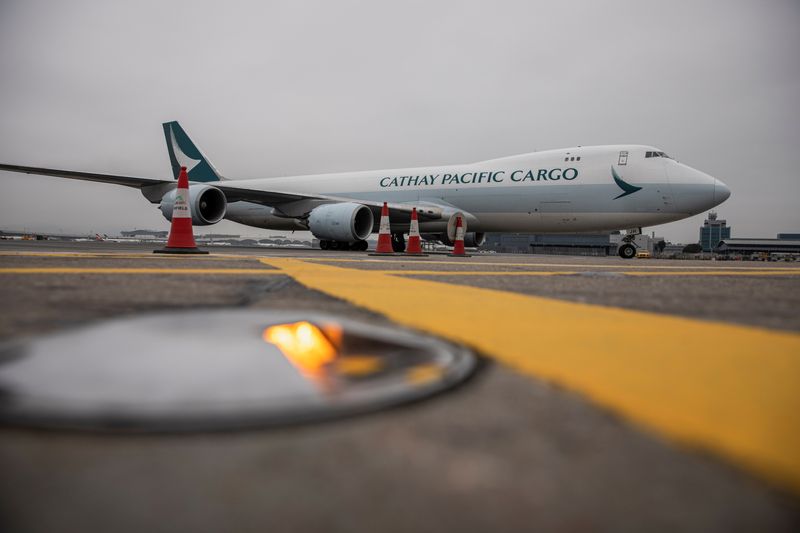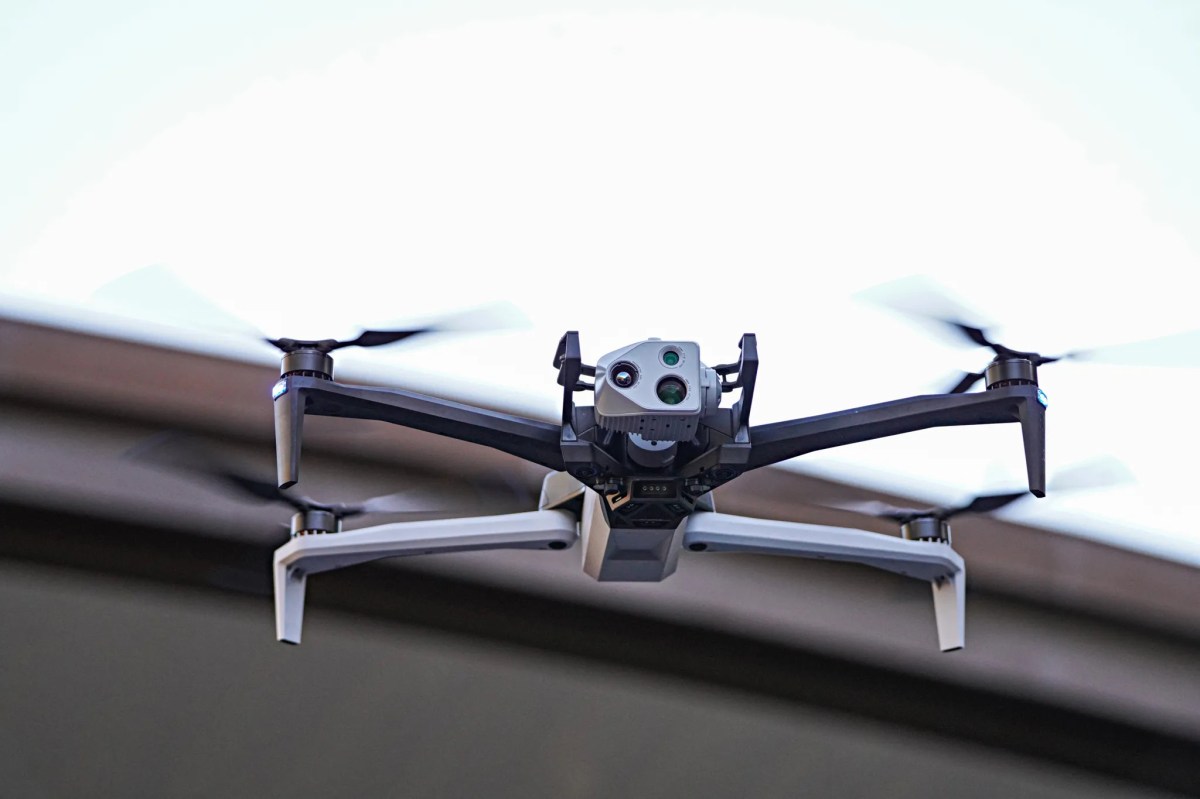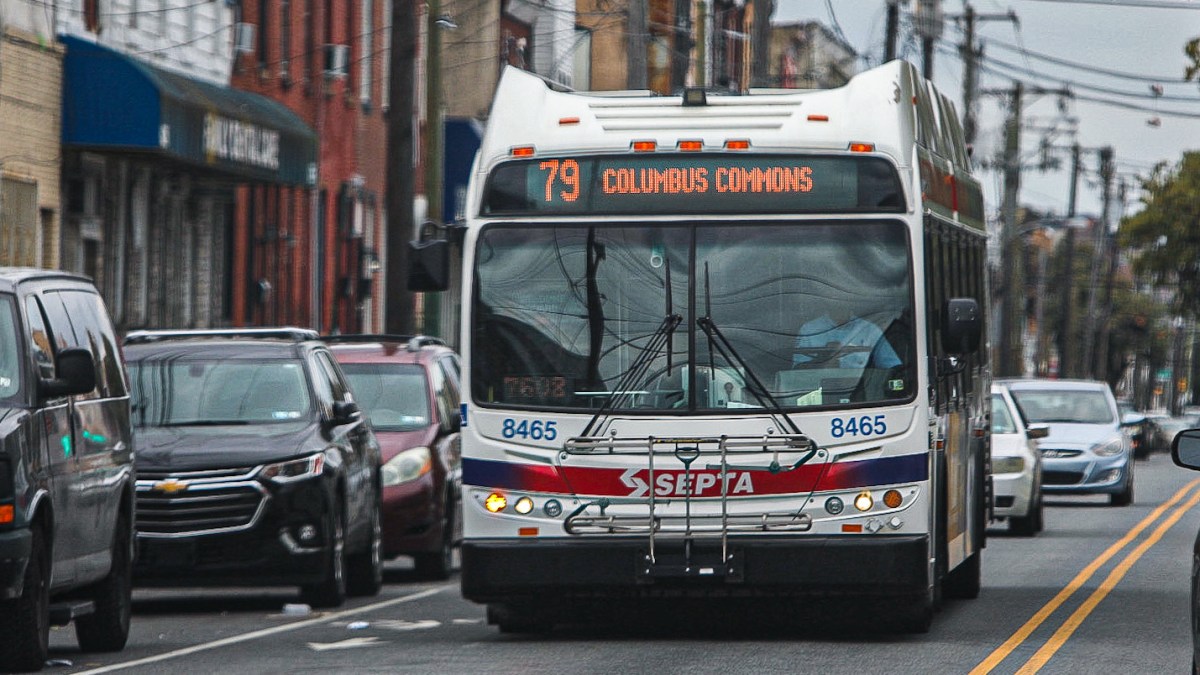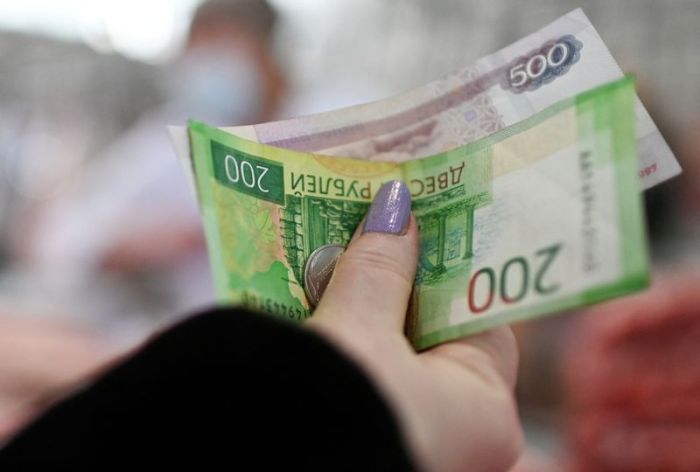By Jamie Freed
(Reuters) -Cathay Pacific Airways Ltd returned to profit in the second half of last year but has since been hamstrung by tough new quarantine rules for crew and said it is trying to boost cargo capacity as much as possible in an effort to cope.
Hong Kong’s flagship airline managed a profit of about HK$2 billion in the second half, thanks to cost cuts and strong cargo demand and pricing, even though it flew 85% fewer passengers than in 2020, when it was also affected by the coronavirus pandemic.
That helped it book a slightly smaller-than-expected annual loss of HK$5.5 billion ($700 million) – also a big improvement from a loss of HK$21.65 billion the prior year.
Cathay shares closed 4.7% higher, outperforming a 0.7% decline in the broader market.
Chairman Patrick Healy said, however, that the airline has had an “extremely challenging” start to 2022 after Hong Kong tightened crew quarantine requirements and banned passenger flights from major markets like the United States, Britain and Australia to contain COVID-19 cases.
“Exactly when current restrictions might change, we have no way of knowing,” he told reporters.
The airline has forecast it will burn through HK$1 billion to HK$1.5 billion of cash a month starting in February due to the new rules.
Since January, the airline has been operating just 2% of its pre-pandemic passenger capacity and less than a third of its pre-pandemic cargo capacity due to those constraints.
But the airline, which relied on cargo for 79% of its revenue last year, could benefit from rising freight prices as a result of disruptions to the Europe-Asia market as European and Japanese carriers avoid Russian airspace.
Air freight rates between China and northern Europe have jumped 34% since Russia’s invasion of Ukraine, according to the Freightos Air Index.
Cathay, like rivals in mainland China and South Korea, is continuing to use Russian airspace on flights to Europe, according to flight tracking website FlightRadar24, keeping flight times shorter at a time of high fuel prices.
However, crew quarantine rules make it difficult for Cathay to add freight flights to take advantage of rising demand.
Cathay is reliant on pilots volunteering to fly tough rosters that involve at least three weeks of confinement to hotel rooms when flying and then upon return to Hong Kong an additional week of quarantine for cargo pilots and an additional two weeks for passenger pilots.
“We are not too concerned about the demand side,” Chief Customer and Commercial Officer Ronald Lam said. “The biggest hurdle for the outlook for the rest of 2022 is on the supply side – mainly on crew quarantine arrangements. If there is any relaxation in the coming months we would have a more positive outlook for the rest of the year.”
Cathay said it had HK$30.3 billion of liquidity as of Dec. 31, including a HK$7.8 billion undrawn loan from the Hong Kong government.
“Depending on the situation we may draw down or we may not,” Chief Financial Officer Rebecca Sharpe said of the loan.
Rival Singapore Airlines Ltd which also lacks a domestic market but has less-strict travel rules, reported a profit in the December quarter and has forecast it will reach around 51% of pre-pandemic passenger capacity this month.
($1=HK$7.8186)
(Reporting by Jamie Freed in Sydney; Additional reporting by Stella Qiu in Beijing; Editing by Shri Navaratnam and Edwina Gibbs)

























